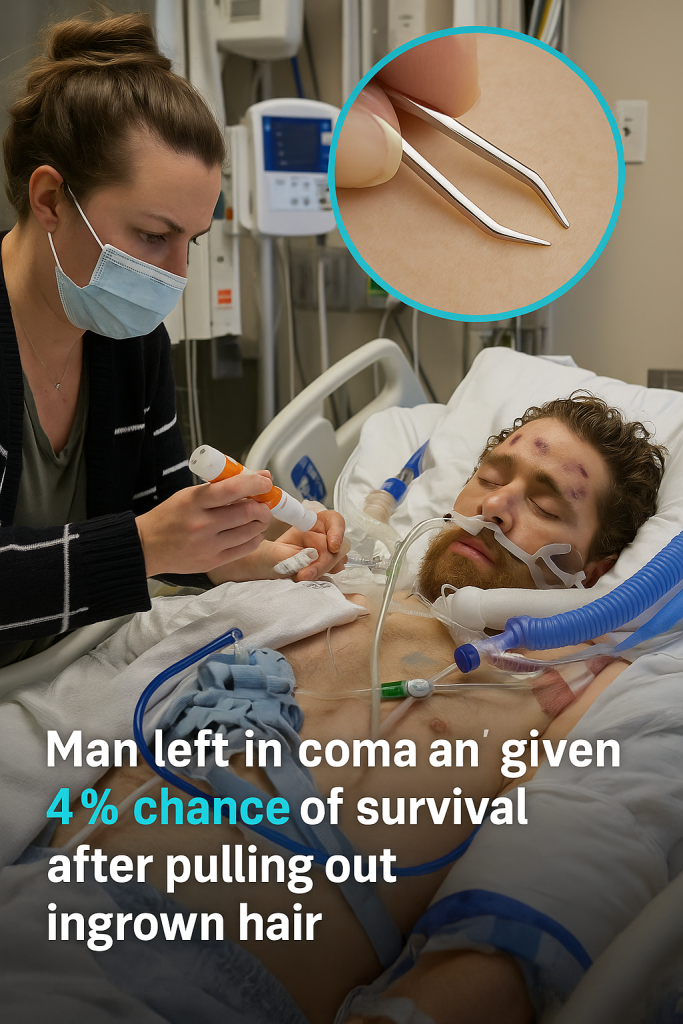An innocuous ingrown hair led to a terrifying health crisis for a man earlier this year, as a severe infection brought him to the brink of death with doctors giving him just a 4% chance of survival. This alarming medical ordeal has shed new light on how even seemingly minor skin issues can escalate into life-threatening emergencies if not promptly treated.
The case, which surfaced in early 2024, involves a man in his late 20s who initially dismissed a painful red bump under his skin as a typical ingrown hair — a common condition where a hair curls back or grows sideways into the skin. What started as localized discomfort rapidly turned into a dangerous bacterial infection that swept through his body, causing high fever, swelling, and intense pain.
Doctors diagnosed him with a rare but critical complication called necrotizing fasciitis, often referred to as a “flesh-eating” bacterial infection. This condition can quickly destroy tissues and spread to the bloodstream, potentially leading to sepsis and organ failure. Due to the extensive tissue damage and systemic infection, physicians estimated his survival odds as no better than 4%.
The medical team sprang into action, administering aggressive intravenous antibiotics, performing multiple surgical debridements to remove infected tissue, and providing intensive care support. Against overwhelming odds, the patient began to stabilize after weeks of treatment and rehabilitation.
The patient’s story is an alarming reminder that while ingrown hairs are typically harmless and easily treated at home, complications can happen, especially if infections develop or if the immune system is compromised. Untreated skin infections can mutate into serious conditions requiring urgent medical intervention.
Health professionals emphasize the importance of proper wound care and monitoring any sign of infection — such as increasing redness, swelling, pain, warmth around the affected area, pus formation, or fever. Early consultation with a healthcare provider can prevent dangerous progressions.
“Most ingrown hairs do not pose a serious risk, but this case underscores the potential severity when infections are neglected,” explained an infectious disease expert familiar with the case. “Recognizing warning signs early and seeking treatment can be lifesaving.”
In the social media age, this story sparked widespread reactions, with many users expressing shock and disbelief that something as minor as an ingrown hair could nearly claim a life.
So, would you risk ignoring an infected ingrown hair? Medical experts urge vigilance. Minor skin issues deserve respect and prompt attention — delaying care can turn a common irritation into a life-threatening emergency.
The man, who has since made a remarkable recovery, is using his experience to raise awareness about the dangers of untreated skin infections and to encourage others not to underestimate their symptoms. His message is clear: take infections seriously, no matter how small they may seem.



